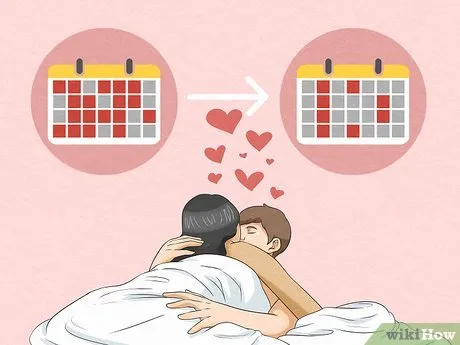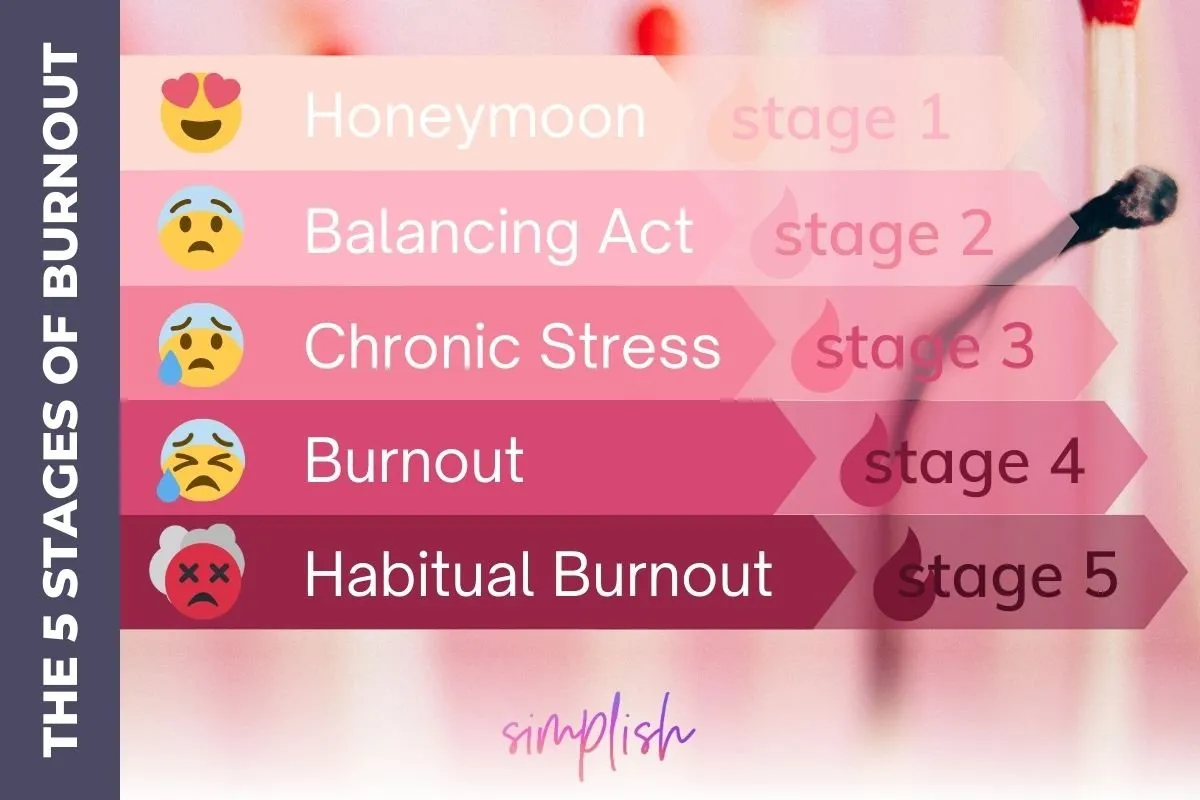Understanding Post-Honeymoon Anxiety
The honeymoon phase, often characterized by intense romance, excitement, and idealized perceptions of a relationship, can be a stark contrast to the realities that emerge afterward. It is common for couples to experience a shift in their emotional landscape once the initial euphoria fades. This transition can bring about feelings of anxiety, stress, and even disappointment as the daily routines, responsibilities, and inevitable conflicts of a long-term relationship begin to surface. Understanding why these feelings arise is the first step in managing them effectively. Itu2019s essential to remember that experiencing anxiety after the honeymoon phase is a normal part of the relationship journey.
What is the Honeymoon Phase?
The honeymoon phase is the initial period of a relationship, typically lasting a few months to a couple of years, characterized by heightened emotions, infatuation, and a sense of novelty. During this time, couples often experience an intense physical and emotional connection, spending a lot of time together and focusing on the positive aspects of their relationship. Communication is usually open and free-flowing, with an emphasis on compatibility and shared interests. Conflict is often minimized, and any differences are easily overlooked. This phase creates a strong foundation, but it’s crucial to understand that the intensity will naturally evolve.
Common Causes of Anxiety After the Honeymoon

Several factors can contribute to the onset of anxiety as the honeymoon phase ends. As the initial excitement fades, couples may begin to see each other more realistically, uncovering imperfections and differences that were previously overlooked. Additionally, external stressors, such as financial pressures, career demands, and family obligations, can add strain to the relationship. These factors can trigger anxiety as couples struggle to navigate the challenges of building a life together. Recognizing these common causes is vital for addressing the underlying issues and preventing anxiety from escalating.
Relationship Changes
As the honeymoon phase ends, the dynamics of the relationship naturally evolve. The initial intensity of the romantic connection often mellows, and couples may spend less time together or engage in fewer exciting activities. This shift can lead to feelings of loneliness or uncertainty. Furthermore, the illusion of perfect compatibility can give way to the realization that partners have different needs, expectations, and communication styles. Navigating these changes requires a conscious effort to understand and accept each other’s differences. Open communication, compromise, and a willingness to adapt are essential for maintaining a healthy and fulfilling relationship.
Financial Stress
Financial stress is a significant contributor to anxiety in any relationship, especially as couples begin to share responsibilities and plan for the future. Managing finances jointly, paying bills, and making major purchases can create tension if partners have different spending habits, financial goals, or attitudes towards money. Unexpected expenses, job loss, or debt can amplify these stressors, leading to anxiety and conflict. Open and honest conversations about finances, the creation of a shared budget, and the development of financial planning strategies can help reduce financial-related anxiety and strengthen the relationship.
Life Adjustments

Major life adjustments, such as moving in together, merging households, or experiencing career changes, can also trigger anxiety. The process of adjusting to a new living environment, merging routines, and negotiating personal space can be challenging. Career-related stress, such as job insecurity, long hours, or workplace conflicts, can impact the relationship dynamic. Additionally, the integration of extended family members into the couple’s lives can create tension and add to the overall stress. Effective communication, clear boundaries, and a willingness to support each other through these life transitions are crucial for mitigating anxiety.
5 Tips to Manage Anxiety After the Honeymoon Phase
Managing anxiety after the honeymoon phase requires a proactive and holistic approach. There are several practical strategies that can help couples navigate this transition and foster a healthy, resilient relationship. By implementing these strategies, couples can improve communication, build trust, and develop coping mechanisms for managing stress and anxiety.
Communicate Openly
Open and honest communication is the cornerstone of a healthy relationship. Couples should create a safe space to express their feelings, concerns, and needs without fear of judgment. Regular check-ins, where partners discuss their emotional states and address any issues that arise, are essential. Active listening, where partners genuinely try to understand each other’s perspectives, is a crucial element of effective communication. Being able to express vulnerabilities and discuss difficult topics creates trust, which helps in reducing anxiety. By communicating openly, couples can resolve conflicts constructively and reinforce their emotional connection.
Establish Realistic Expectations

It is important to have realistic expectations about the relationship. Understand that the honeymoon phase is not sustainable and that the relationship will naturally evolve over time. Recognize that conflict is inevitable and learn to approach disagreements constructively. Avoid comparing your relationship to others or to the idealized versions often portrayed in the media. Focus on the strengths of the relationship, appreciate your partner’s positive qualities, and accept that neither you nor your partner is perfect. Building a foundation of realistic expectations can reduce the pressure to maintain an unattainable level of perfection.
Prioritize Self-Care
Taking care of your physical and mental well-being is crucial for managing anxiety. Engaging in activities that promote relaxation and reduce stress can significantly impact your emotional state. This can include regular exercise, getting enough sleep, eating a balanced diet, and practicing mindfulness or meditation. Make time for hobbies and interests outside the relationship, allowing you to maintain your sense of self. Setting boundaries and saying ’no’ to commitments that overwhelm you is also essential. Practicing self-care not only reduces anxiety but also enhances your overall happiness and well-being, making you a better partner.
Seek Professional Help
If anxiety persists or significantly impacts your relationship, seeking professional help is a wise step. A therapist specializing in couples or relationship counseling can provide valuable tools and strategies for managing anxiety and improving communication. Individual therapy can also be beneficial if you’re struggling with personal issues that are contributing to the anxiety. Consider online therapy as an alternative. During therapy, you and your partner can work on identifying the root causes of anxiety, developing coping mechanisms, and strengthening your relationship. Seeking professional support demonstrates a commitment to each other and to the relationship’s well-being.
Strengthen Your Support System

Building a strong support system can provide emotional resilience during times of stress and anxiety. Surround yourself with supportive friends, family members, or other trusted individuals. Share your feelings and experiences with those you trust, as having a listening ear and a source of encouragement can be incredibly helpful. Make an effort to maintain connections with your support network, even when you’re busy or preoccupied with the relationship. Consider joining support groups or communities where you can connect with others who share similar experiences. A strong support system provides a buffer against anxiety and helps you feel less alone in your challenges.
Long-Term Strategies for Managing Anxiety
Developing long-term strategies is crucial for managing anxiety and sustaining a healthy relationship. Integrating these strategies into your daily lives can help couples to navigate future challenges and maintain emotional well-being. Long-term strategies often focus on continuous communication, ongoing self-care, and the willingness to seek professional guidance when needed.
Couples Therapy
Couples therapy provides a structured setting for partners to address their issues and improve their communication skills. A therapist can provide guidance on resolving conflicts, building trust, and fostering a deeper connection. Couples therapy can address issues like communication problems, unmet needs, or recurring disagreements. It helps partners develop strategies for managing stress and anxiety and building a more resilient relationship. Even when things are going well, couples therapy can be a helpful tool for strengthening the relationship and preventing future problems. By working with a therapist, couples can gain valuable insights into their dynamics and learn to navigate challenges effectively.
Individual Therapy

Individual therapy can be beneficial for addressing personal issues that contribute to anxiety and stress. A therapist can help you understand the root causes of your anxiety, develop coping mechanisms, and improve your self-esteem. This approach can be especially valuable if underlying issues, such as past trauma, are affecting your relationship. Individual therapy provides a safe space to explore your feelings and develop healthier thought patterns and behaviors. By working on your mental health, you can enhance your ability to manage anxiety and improve your overall well-being. When you’re at your best, you can contribute more positively to the relationship.
Mindfulness and Relaxation Techniques
Incorporating mindfulness and relaxation techniques can be very helpful in managing anxiety on a daily basis. These practices help you to become more aware of your thoughts and feelings, promoting a sense of calm and reducing stress. Mindfulness involves paying attention to the present moment without judgment. Regular mindfulness practice can help you identify anxiety triggers and respond to them more effectively. Relaxation techniques, such as deep breathing exercises, progressive muscle relaxation, and yoga, can help calm the nervous system and reduce physical symptoms of anxiety. These techniques can be used at any time, providing immediate relief from anxiety and promoting long-term emotional well-being. They are easy to learn and can be integrated into your daily routine to help maintain a sense of balance and control.
Conclusion
Experiencing anxiety after the honeymoon phase is a common and manageable challenge. By understanding the causes of this anxiety and implementing effective strategies, couples can navigate this transition and build a strong, resilient relationship. Open communication, realistic expectations, self-care, professional help, and a supportive network are essential components of this process. Remember that building a lasting relationship takes time, effort, and a willingness to work together. By prioritizing your mental and emotional well-being, and by supporting each other through challenges, you can create a fulfilling and loving partnership that thrives long after the honeymoon phase.
